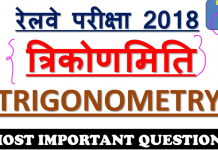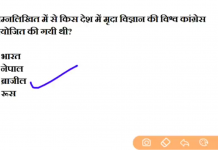Every year, hundreds of thousands of students ponder over one of the most intriguing questions of the recent past – What is a good GRE score?
Is 320 a Good GRE Score?
The fact of the matter is, most grad programs don’t look at total GRE scores but rather your individual scores for Verbal and Quant. Therefore, how good a GRE 320 is depends on two key factors:
What individual percentiles you scored in on Verbal and Quant?
What kinds of GRE scores your programs want?
Each year, ETS calculates individual percentiles for Verbal and Quant (as well as for Analytical Writing, though this score is separate from your total score). As such, how your scores add up to 320 can vary: you could get 160 on Verbal and 160 on Quant, 165 on Verbal and 155 on Quant, etc.
Generally, you’ll want to get a higher score on the GRE section more closely related to your field.
Interestingly, Verbal percentiles are consistently higher than Quant percentiles. This is because more test takers score highly on Quant than they do on Verbal, making Quant a more competitive section. Thus, to get the same percentile on both Verbal and Quant, you’d need to earn more points on Quant than you would on Verbal.
GRE Score 320: What Are Your Chances of Admission?
What’s more important than percentiles? Knowing what kinds of GRE scores your grad programs want. And the best way to figure this out is to see what the average GRE scores of your programs are.Typically, you’ll want to aim for GRE scores at or above your program’s averages.
If your programs’ averages are around 320, this will be a good score for you as it’s likely to make you a competitive applicant. But if your programs’ averages are more than 320, you’ll need to aim higher to give yourself a better chance of admission. (And if the averages are lower than 320, you can either aim lower or still go for 320 to give yourself a very high chance of acceptance.)
How Important Is Getting a 320 GRE Score?
Ultimately, how important getting a GRE 320 is depends on where you’re applying.
Some programs—usually competitive ones—will strongly consider GRE scores during the admission process. Why? Well, with a more selective admission process, these programs need more application components to use in order to evaluate potential students.
In addition, master’s programs tend to place slightly more emphasis on GRE scores than doctoral programs do. This is most likely due to the fact that PhD programs typically focus more heavily on relevant work or research experience than standardized test scores. Because master’s students often have less experience in their fields than PhD students do, GRE scores tend to play a bigger role in admission.
Can I score a 320 with just 60-90 days of prep?
The majority of hopeful graduate school or business school students spend between two and three months preparing for the GRE exam. Given we all struggle to sustain our attention and concentration for more than this long, such a duration of test prep makes perfect sense. After all, there are more opportunities to get distracted in six months of preparation time rather than 2 or 3 months.
To score 320 on the GRE, you must first make a GRE study plan. Studying for the GRE can seem like a big task, akin to slaying a dragon that demands vocabulary and spews math problems instead of fire. To make preparing for the GRE more manageable, you need a study plan.
How to get a 320?
Here is a quick recommendation on what you should be studying, if you want a high score on the GRE. Keep in mind that this is just a recommendation from us, so feel free to make changes as you see fit, based on your personal experience.
* ETS Official Guide & ETS Powerprep software
* Barron’s 333 High Frequency words
* Ultimate Vocabulary Prep App
GRE verbal preparation
* Know your vocabulary
* Speak GRE-ese
* Learn pacing
* Become a word detective
Gre math prep
* Write down any key numbers, variables, or phrases from the Quant Comp question and write them down on your scratch pad. Don’t just scan the screen and start solving – QC questions are slightly different from Problem Solving questions, and often don’t require any math at all to solve! Ask yourself: why am I being given this
piece of centered information? Always approach it strategically.
* Analyze tables/graphs thoroughly. For Data Interpretation questions, don’t rush to the problems. Read the titles, labels, units, and note the general trends of the data beforehand. How do the variables interact with one another? What general conclusions can be drawn about the presented information? You’ll know exactly where to find the correct answer if you already full grasp the data.
65-min DT Link: http://bit.ly/2Fm84VO
Free Profile Evaluation: http://bit.ly/2pKH5ga
Free Vocab app: http://bit.ly/2uyFzS1
Free GRE app: http://bit.ly/2toVEdw
source













![CY_GATE_2019_PHYSICAL_SPECTROSCOPY_[ELECTRONIC_BASIC]_All IN ONE_[Short_Trick]_2018-19_PART_1ST - Videos](https://trends.edugorilla.com/wp-content/uploads/sites/8/2018/08/cy_gate_2019_physical_spectroscopy_electronic_basic_all-in-one_short_trick_2018-19_part_1st-218x150.jpg)


















![24 August 2018 – The Indian Express Newspaper Analysis हिंदी में – [UPSC/SSC/IBPS] Current affairs - Videos](https://trends.edugorilla.com/wp-content/uploads/sites/8/2018/08/a520-218x150.png)



